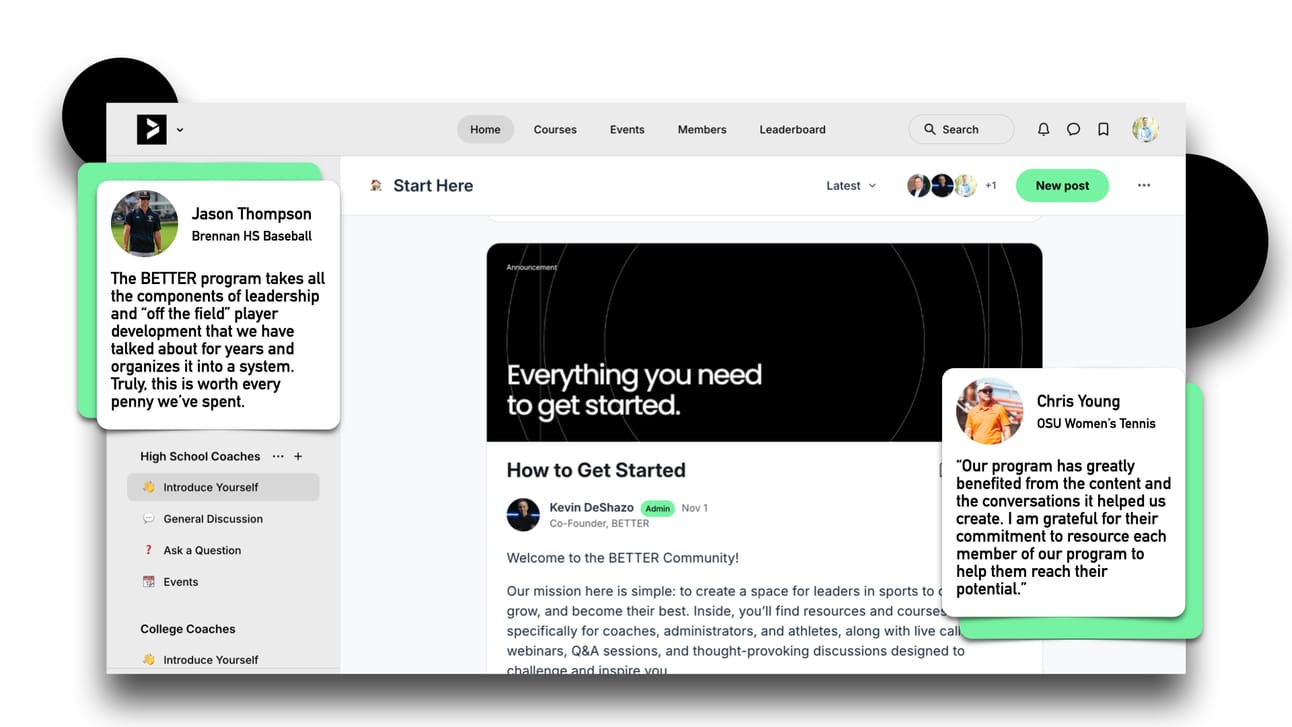
⏳ Read Time: 3 min
📌 What’s inside:
⚠️ The hidden killers: Why good seasons collapse without warning
📊 The research: Small cracks compound into major failures
🛠 Five traps to watch for in your own leadership this year
🌗 Seasons Don’t Collapse Overnight
Think about the last time you saw a promising season unravel.
Maybe it was a talented team that never clicked.
Or an athletic department project that started with energy but sputtered out halfway through.
It rarely happens due to one major failure. Instead, it’s the little things — the overlooked habits, the slow leaks of energy, the silent breakdowns in trust. By the time the collapse is apparent, the damage is already done.
Leadership isn’t just about doing the big things right. It’s about noticing and fixing the small things before they compound.
📊 Research Insight: Catching Small Cracks Before They Become a Hole in the Wall
Karl E. Weick & Kathleen M. Sutcliffe’s work on High Reliability Organizations shows that the most resilient teams aren’t those who avoid failures—they’re the ones who detect and adapt to tiny failures early. “Preoccupation with failure,” “sensitivity to operations,” and “commitment to resilience” are among the hallmarks of HROs.
A 2017 follow-up study of U.S. Navy SEALs (“Mindfulness in Action”) found that SEALs don’t just train for endurance or strength. They build habits and systems that alert them to weak signals—small things out of place, unnoticed tensions—and adapt before small cracks become system failure.
What this means for coaches and ADs: resilience isn’t built only in crisis. It’s built in the daily vigilance of noticing what’s slightly off—and acting on it quickly.
🛠️ Putting It All Together:
🛠 Five Things That Quietly Derail a Season
Unclear Vision
When no one knows what success looks like — or when the leader keeps moving the target — teams drift.
✅ Define what a “win” looks like today, this week, and this year. Write it down. Share it often.
Inconsistent Communication
Missed follow-ups, vague messages, or silence in critical moments erode trust fast.
✅ Build a rhythm: weekly staff huddles, daily touchpoints, clear pre/post-game communication.
Neglecting Your Own Energy
Exhausted leaders create exhausted teams. Your pace becomes theirs.
✅ Protect recovery time. Block thinking space. Manage your energy like your athletes manage theirs.
Chasing Outcomes Instead of Progress
Focusing only on the scoreboard blinds you to growth that leads to lasting success.
✅ Make progress visible: highlight small wins, track daily improvements, celebrate habits.
Ignoring the Drift
Early in the year, it’s “no big deal” if standards slip once or twice. By the end of your season, those habits define you.
✅ When something drifts from your culture, address it immediately. Minor course corrections prevent big derailments.
Notice something? Each of these quiet derailers starts with the leader. That’s why we’re excited to release our first PowerBook in two weeks: Lead Yourself First.
It’s a practical guide to building the habits and tools that help you lead yourself — so you can lead others. Stay tuned.
🏁 Conclusion: Minor Corrections
The truth is, seasons don’t derail from one big mistake. They slowly wither from neglect — from leaders who miss the quiet killers.
Lead yourself with clarity, energy, and focus, and you’ll catch these traps before they sink your season.
🧱 Webinar on Handling Adversity
Two weeks ago, Kevin and Seth led a Webinar on Handling Adversity to all of our coaches in our Culture Playbook Community.
If you want to see that Webinar, reply to this email and we’d be happy to share it with you.

It’s part of what we do every month in our Coach Community, as outlined in our Culture Playbook.
Want to make sure you're part of every Webinar?
🛠️ Want to win more? Know Yourself First.
Just last week, nearly 60 leaders signed up for our 5-day leadership course based on your Voice!

It will be sent to your inbox starting the Monday after you take the assessment and run for that week.
The assessment takes 10-15 minutes. Take it below.
